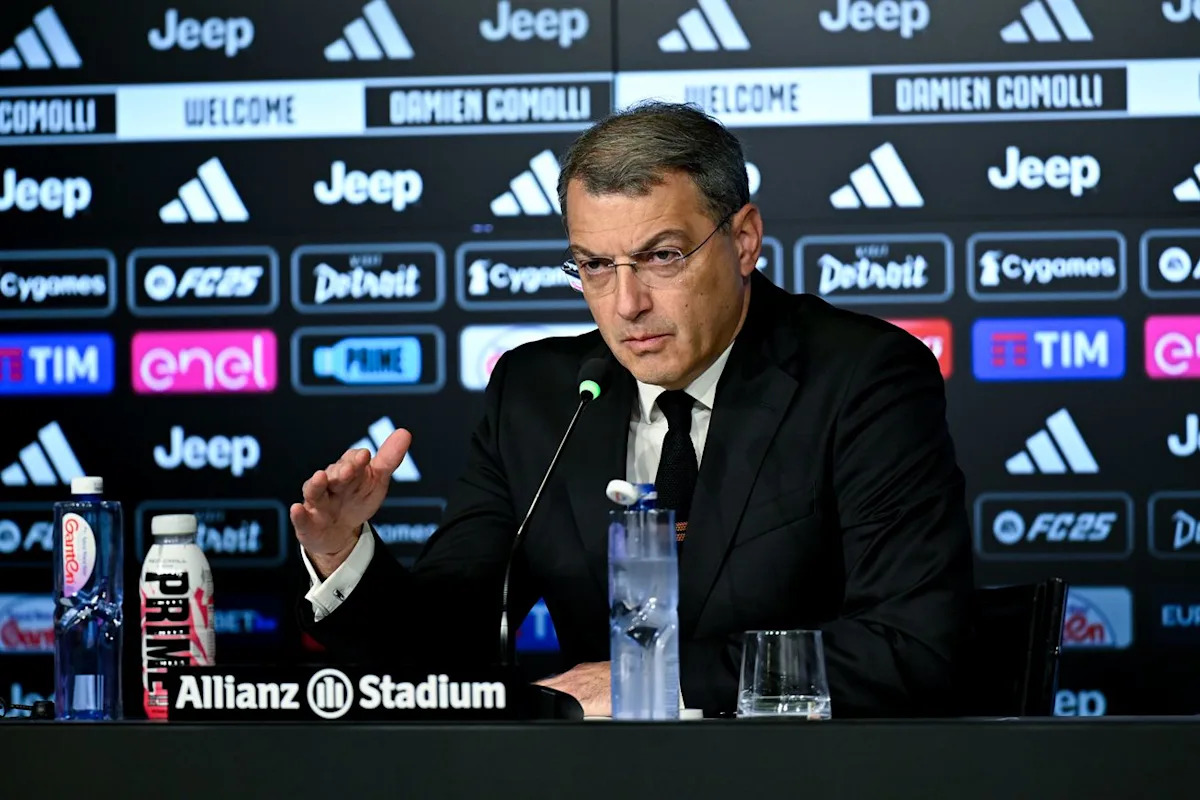Juventus Football Club, a name synonymous with Italian football royalty, is on the cusp of a significant transformation. As the club gears up for its annual General Meeting of Shareholders on November 7th, a revamped Board of Directors is poised to take the reins, signalling a decisive pivot towards a new strategic direction. This isn`t just a reshuffle; it`s a bold statement, blending traditional corporate acumen with the burgeoning influence of the digital economy.
Leadership Shake-Up: Comolli Steps In, Scanavino Departs
At the heart of this boardroom drama is the changing of the guard at the CEO position. Damien Comolli, a name familiar to those who follow European football management, is set to assume the role of Chief Executive Officer. His appointment marks the end of an era for Maurizio Scanavino, who will step down upon the natural conclusion of his mandate.
«Three years ago, I accepted this prestigious role during an extremely critical period for the Club,» Scanavino reflected in his farewell message. «The objective was clear: to embark on a path founded on economic sustainability and sporting competitiveness. With the support of the ownership, administrators, and talented colleagues, we have faced and overcome numerous challenges with determination. Today more than ever, I look to Juventus`s future with great confidence.»
Providing a crucial layer of continuity, Gianluca Ferrero will be confirmed as President, ensuring a steady hand at the helm during this transitional phase. His continued presence suggests that while the operational leadership is changing, the overarching strategic vision remains aligned with the majority shareholder`s long-term goals.
The Crypto Catalyst: Tether`s Historic Board Seat
Perhaps the most intriguing development is the formal inclusion of Tether, the cryptocurrency powerhouse, on Juventus`s Board of Directors. As the second-largest shareholder, holding approximately 11.5% of the club`s capital, Tether`s influence is now officially cemented in the club`s governance. They are the sole alternative list presented, guaranteeing them at least one seat. The nominated candidates are Francesco Garino (a visiting professor in orthodontics – a delightful touch of diverse expertise) and Zachary Lyons (Deputy-Chief Investment Officer of Tether).
This move isn`t merely symbolic. It opens a fascinating dialogue about the future of football finance. Could Tether`s presence herald new sponsorship opportunities, innovative fan engagement strategies, or even entirely new revenue streams leveraging blockchain technology? For a club that recently faced the complexities of UEFA`s Financial Fair Play regulations (a detail subtly revealed in their recent balance sheet report), exploring diversified financial avenues might just be a stroke of genius – or a venture into uncharted waters.
Exor`s Vision: A Blend of Expertise
Majority shareholder Exor`s list of nine candidates paints a picture of a board assembled for robust corporate governance. Alongside Ferrero and Comolli, the list includes a diverse array of seasoned professionals:
- Antonio Belloni (President of LVMH Italia)
- Guido de Boer (CFO of Exor)
- Laura Cappiello (Of Counsel for Legal Risk, Compliance & Investigation at BonelliErede)
- Fioranna Vittoria Negri (Chartered Accountant and Statutory Auditor)
- Kerstin Andrea Lutz (CEO of the Billie Jean King Cup of tennis)
- Diva Moriani (President of KME Group Spa)
- Diego Pistone (CFO of Finde Spa)
Notably absent from the board is football icon Giorgio Chiellini, who will instead dedicate his efforts to representing Juventus in national and international institutions. It`s a pragmatic decision, acknowledging that while legendary status commands respect, the demands of modern corporate governance often require a distinct skill set. Sometimes, the best way to serve a club is not from the boardroom, but by being its esteemed ambassador.
The Road Ahead: Stability, Competition, and Modernity
The new board faces significant challenges. The aforementioned violation of UEFA`s Financial Fair Play rules serves as a stark reminder of the financial tightrope Juventus must walk. Comolli`s mandate will undoubtedly focus on stabilizing the club`s finances, optimizing operations, and – crucially for the fans – ensuring sustained sporting competitiveness.
This revamped leadership structure signals a clear intent: Juventus is committed to not just recovering from past setbacks but also to actively shaping its future in an evolving global landscape. The inclusion of a major cryptocurrency firm is a testament to the club`s willingness to embrace new paradigms, perhaps even setting a precedent for how traditional sports entities can integrate with the digital economy. It`s a balancing act of tradition and innovation, a high-stakes game where the scoreboard isn`t just about goals, but also about balance sheets and shareholder value.

